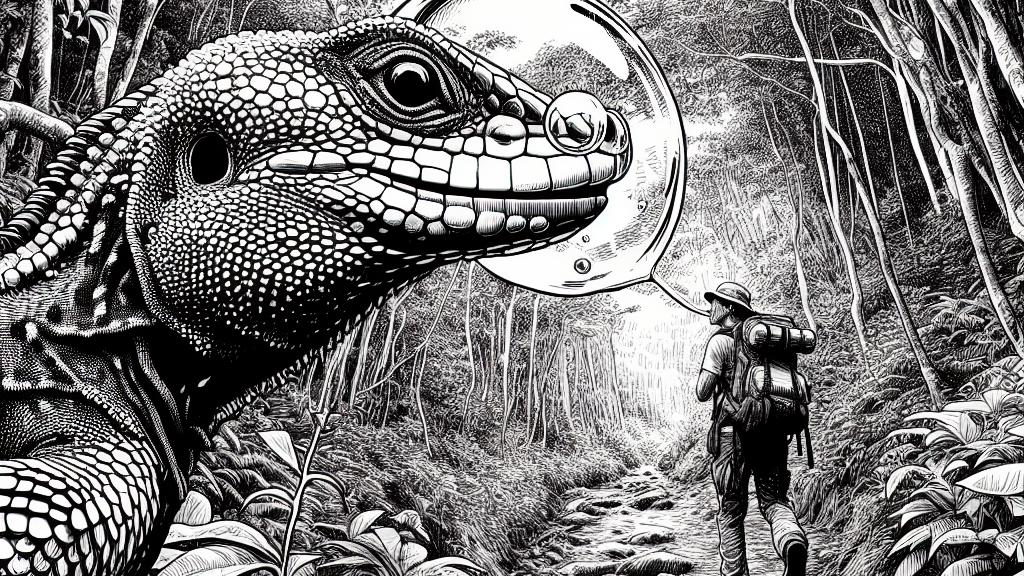The Scuba Diving Lizard: How a Unique Air Supply Extends Underwater Time
Overview
- Discover the water anole, a remarkable lizard that uses a self-created air bubble, much like scuba gear.
- This extraordinary adaptation allows it to breathe underwater for over 16 astonishing minutes.
- Its unique behavior likely evolved as a clever strategy to escape from predators lurking nearby.

Exploring Costa Rica's Lush Habitat
Deep within the rich, tropical forests of Costa Rica lies a treasure trove of biodiversity, including a captivating creature known as the water anole (Anolis aquaticus). This unassuming lizard possesses an extraordinary ability: it can create a bubble of air on its snout, a feat that mirrors the scuba gear human divers rely on. Imagine trekking through the dense jungle, your eyes catching sight of this unique lizard as it deftly navigates its aquatic environment. The vibrant ecosystems of Costa Rica, teeming with life, offer the perfect backdrop for such remarkable adaptations, revealing nature's genius in action.
Breathing Underwater: A Marvel of Nature
The water anole's ability to remain submerged for an impressive 16 minutes is not just remarkable; it’s a testament to nature’s ingenious solutions. By blowing out and then re-inhaling a carefully crafted air bubble, this small lizard optimizes its oxygen intake while hiding from potential threats. Lindsey Swierk, a dedicated ecologist from Binghamton University, captured this fascinating behavior on film, showcasing how the lizard traps air pockets around its body. This strategy serves dual purposes: it shields the anole from hungry predators like birds above and enables it to forage for underwater insects. Such extraordinary animal behavior exemplifies the elaborate survival tactics that have evolved over time.
An Evolutionary Triumph of Adaptation
The astonishing bubble-breathing phenomenon of the water anole illustrates the brilliance of evolutionary adaptations. This remarkable ability is more than just a survival mechanism; it allows these lizards to thrive in their unique aquatic habitats. Swierk eloquently notes that, by diving underwater, these little creatures can effectively vanish from sight—an incredible escape plan! Future research aims to delve deeper, exploring how the anole's specialized head shape aids in bubble retention and offers insight into the broader dynamics of marine life. Understanding this fascinating interplay of adaptation not only enhances our appreciation for biodiversity but also highlights the essential roles such traits play in the survival of species.

Loading...